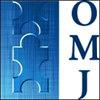管理教育中的个性与通用学习设计
Q2 Social Sciences
引用次数: 1
摘要
本文旨在提高学生对通用学习设计(UDL)的准备程度的理解,从而减少管理学院采用UDL的障碍。它探讨了学生的个性(严谨性和开放性)如何影响他们接受UDL的准备程度,并调查了这种关系是如何通过自我导向学习(SDL)介导的。设计/方法/方法分析使用来自管理课程学生的调查数据。从这些数据中创建了多个项目结构和控制变量。采用自举法估计参数和标准误差的中介回归模型产生结果。研究结果表明,SDL与学生的UDL准备程度密切相关,并且SDL完全中介了责任心与UDL之间的关系。然而,对经验的开放与UDL直接相关,而不需要任何中介。研究局限/启示本研究仅适用于一所院校和两门管理课程。本研究中使用的方法仅限于UDL模型的一部分,UDL模型是衡量学生参与选择的准备程度。未来的研究可以将该模型扩展到其他课程和机构以及UDL模型的其他部分。这些发现提供了洞察学生的特点,使他们能够从UDL方法中获得授权和动力。在管理教育中实施UDL可能需要学习管理策略,以适应学生对UDL的准备。这项研究在确定解释这种准备的学生特征方面取得了进展。社会意义通过使具有不同个性和学习风格的学生更容易接触到管理教育,sudl可以改善管理教育。原创性/价值本研究提出了一种分析UDL在管理教育中的适用性的方法。它还设计并实施了一项新的调查措施,以了解学生对UDL的准备情况。本文章由计算机程序翻译,如有差异,请以英文原文为准。
Personality and universal design for learning in management education
Purpose
This paper aims to improve the understanding of student readiness for universal design for learning (UDL), thereby reducing a barrier to its adoption by management faculty. It explores how students’ personality (conscientiousness and openness to experience) affects their readiness to embrace UDL and investigate how that relationship is mediated by self-directed learning (SDL).
Design/methodology/approach
Analysis uses survey data from students in management courses. From these data are created multi-item constructs and control variables. A mediated regression model that uses bootstrapping to estimate parameters and standard errors generates the results.
Findings
The findings were that SDL is strongly related to student readiness for UDL and that SDL fully mediates the relationship between conscientiousness and UDL. Openness to experience, however, directly relates to UDL without any mediation.
Research limitations/implications
This research applies only to one institution and two management courses. The methodology used in this study is limited to one part of the UDL model, which is a measure of student readiness to engage in choice. Future research can extend this model to other courses and institutions and other parts of the UDL model.
Practical implications
These findings provide insight into the student characteristics that enable them to gain empowerment and motivation from the UDL approach. Implementation of UDL in management education may require learning management strategies that accommodate student readiness for UDL. This study makes progress in identifying student characteristics that explain this readiness.
Social implications
UDL can improve management education by making it more accessible to students with different personalities and learning styles.
Originality/value
This study developed a method for analyzing the applicability of UDL in management education. It also devised and implemented a new survey measure for student readiness for UDL.
求助全文
通过发布文献求助,成功后即可免费获取论文全文。
去求助
来源期刊

Organization Management Journal
Social Sciences-Education
CiteScore
2.60
自引率
0.00%
发文量
13
审稿时长
8 weeks
期刊介绍:
Organization Management Journal is a blind peer-reviewed online publication sponsored by the Eastern Academy of Management. OMJ is designed as a forum for broad philosophical, social, and practical thought about management and organizing. We are interested in papers that address the interface between theoretical insight and practical application and enhance the teaching of management. OMJ publishes scholarly empirical and theoretical papers, review articles, essays and resources for management educators. Appropriate domains include: -Organizational behavior- Business strategy and policy- Organizational theory- Human resource management- Management education, particularly experiential education
 求助内容:
求助内容: 应助结果提醒方式:
应助结果提醒方式:


